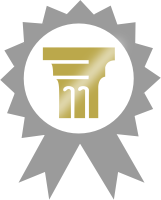Material Detail
Authentic Assessment Toolbox
The Authentic Assessment Toolbox site is a tutorial for learning all about authentic assessment. It is presented with hypertext and features creating authentic tasks, rubrics and standards for measuring and improving student learning. What is authentic assessment? Why do we need it? How do you do it? Answers to these questions as well as information on Standards, Rubrics, Portfolios, and Examples can be found here. Educators at all levels will...
Show MoreQuality
-
Peer Review
-
User Rating
- Comments (39) Comments
- Learning Exercises (11) Learning Exercises
- Bookmark Collections (256) Bookmark Collections
- Course ePortfolios (9) Course ePortfolios
- Accessibility Info
More about this material
Browse...
Disciplines with similar materials as Authentic Assessment Toolbox
People who viewed this also viewed
Other materials like Authentic Assessment Toolbox
Comments
Joseph Hancock (Consultant)
Nolan Mann (Student)

Heather Smith (Librarian)

mark santos (Student)

Movie Men (Staff)

Spelling Bee (Librarian)
Alicia Merino Gamboa (Teacher (K-12))
Cinthia Milan (Administrator)

Jack Benjamin (Content Developer/Instructional Designer)
Ruth Beck (Consultant)

Samad Dimbie-Mumuni (Faculty)
This is an outstanding peace of information inded. The whole topic on Authentic Assessment has been adequately exhausted, well presented and the content easily comprehensible.
The author's approach to the topic was appropriate as the assumtions of each assessment type were stated as a launching pad for the presentation.
I have used the the authentic assessment tool some time ago in an exceptional education classroom in a high school and I can attest that students' enthusiam in the project just hit the roof. My students wre classified as being learning disabled, and from that expeience, I learnt from their engagement in the project that it is critically important for teachers to, at anytime in the teaching and learning process, identify whatever instructional strategy that will fully benefit them. Students with learning disabilities in particular, dislike monotony, especially if the learning tasks are so regimented and uninteresting. Authentic Assessments are, therefore, one sure way of getting them interested and engaged. Even though the author does not single out any category of learners as being the most appropriate beneficiaries of AA, I have course to believe that those with learning disabilities will benefit from it the most, if well handled.
I particularly like the author's emphasis on the need for a combination of the types of assessments. Of course, it couldn't be all about one or the other.

Inés Gil-Jaurena (Faculty)
A complete site to learn concepts, methodology and tools for assessment. It provides useful guidelines and examples in different areas.

Brittany Davis (Student)
This is a great tool in developing relative assesments and guidelines. Very well written, and great examples.

Sabah Ahmad (Student)
Well build and plenty of information. easy to read and consistant in information.
Technical Remarks:
I find it overwhelming in paragraph after paragraph of information.

MYRIAM ROJAS (Teacher (K-12))

penni Cooke (Faculty)
The example of the mentor/mentee in learning how to properly phrase an Authentic Assessment for a course assignment is excellent. I currently use most of the language in attempting to clearly communicate to students what is expected, "before" it is due. After reading this example, I have a better understanding of how to direct and guide students to particular areas that will be expected. I have a new course beginning tomorrow and am excited about incorporating this new knowledge.

Chris Sorensen (Faculty)
Great resource for learning about authentic assessment. What's especially nice, is that this resource doesn't stop at the "what" but it elaborates on the "why" and "how" of using authentic assessment.
Paul Bowdre (Faculty)

dana milstein (Faculty)
Rebecca Neel (Librarian)

tomas wilson (Consultant)
Milton McClary (Faculty)

Bonnie Riedinger (Administrator)
Very thorough and clear definitions, explanations and examples. It is difficult, however, to construct a site that includes information for k-12 as well as higher education. There are fewer examples from higher ed and some of the k-12 examples in the main text may be off-putting for higher ed faculty.

sylvia gonzález (Faculty)
Excelente material tipo curso para educadores que desean medir aprendizaje efectivo de sus alumnos con herramientas novedosas, material accesible y comprensible a todo nivel.

Amy Gerney (Faculty)
This toolbox reinforced the principles that I use for clinical reasoning and competency based instruction where paper and pencil tests just don't ensure that students can perform in real world scenarios. As an occupational therapy educator, I am always trying to simulate real world clinical situations and this learning environment gave me some new tools as well as support for what I am doing in the classroom. Great site.

Tani McBeth (Faculty)

Anne Marie Pinchera (Administrator)
Technical Remarks:
Jane Moore (Faculty)
Sheri Hutchinson (Administrator)

Michael Finn (Other)
Technical Remarks:

Cheryl Medearis (Faculty)
create a rubric for two MERLOT site lessons that I taught to my General Methods
of Teaching students. I then allowed the students to access the website and
required them to create two authentic assessments for an upcoming lesson that
they will teach. Students commented that this is a site they will refer to often
and wished they had known about it earlier. They were amazed at all of the
information that this site contained.
Technical Remarks:

Nicholle Schuelke Berg (Faculty)
terminology regarding authentic assessment. Navigating such a site can allow
future teachers (and practicing teachers alike) to establish a base in
comparison regarding definitions used in assessment practices. Individuals can
then evaluate what "matters most" to a classroom teacher and to an institution.
<

Jennifer Murray (Student)
as a tool to help myself to become more experienced in creating them myself.
However, I can't be completely sure that I would use it regularly until I was
able to use it in a real life situation and was able to discover problems that
may arise I'm not aware of right now.
Dr. Troy Tenhet (Faculty)
teaching assignment.







Gerry Hanley (Administrator)